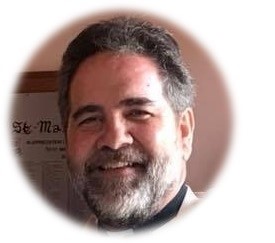Greetings my brothers and sisters,
In a couple of weeks we will begin our celebration of the Season of Lent with the distribution of ashes on
Ash Wednesday. The ashes remind us, as one of the formulas for the imposition of ashes states, of the
need to, “Turn away from sin and believe in the Gospel”. That is, of our need to repent of our sins and
put our trust in Jesus, the Way, the Truth and the Life. Everything else in life must lead me to Jesus,
otherwise it must be removed and avoided in the future. Jesus, by his life, passion, death and
resurrection, is the only way to Eternal Life with God, our eternal vocation. All other “ways” are no ways
at all.
Last month we went through the latest document issued by the Vatican’s Dicastery for the Doctrine of
the Faith, Fiducia Supplicans. We saw in this document a desire on the part of the Church to reach out to
people who are in situations which are not in line with what God desires for human beings by blessing
them. The idea behind the blessing is to help these people to see how they need to repent (Turn away
from sin) and trust in Jesus (Believe in the Gospel). In fact, the document assumes that the person
requesting the blessing
…show himself to be in need of God’s saving presence in his life…To seek a blessing in the Church
is to acknowledge that the life of the Church springs from the womb of God’s mercy and helps us
to move forward, to live better, and to respond to the Lord’s will.
This assumption, if true, would certainly make a blessing of such a person not only possible but very
welcome. However, it might not be the case that the person seeking the blessing wants “to move
forward, to live better, and to respond to the Lord’s will”, but is instead seeking an approval of their life
situation. This calls for prudence on the part of the minister who is asked to give the blessing. The
Archbishop of San Francisco, Salvator Cordiglione, gave some very sound direction to the priests of his
Archdiocese in this regard:
It is manifestly not pastoral simply to give a blessing and then walk away from people who need,
and all the more so are seeking, the Church’s support in living the life of grace in Christ. … the
request for a blessing is an occasion for pastoral engagement, a manifestation of openness to
God’s love and the Church’s care on the part of people who may feel alienated from both.
If the blessing is to truly be a blessing, that is, an opening to the presence and grace of God, then this
greater “pastoral engagement” might be called for and necessary. We are seeking to hear and answer
the call of God, which is not possible if I am living apart from God in my very life situation.
This need for pastoral engagement is particularly true if the blessing is being requested by the couple as
couple. Here in the United States, at least, when one speaks of people being a “couple” what is meant is
there is a special, intimate and almost always sexual, relationship between the two people. If two
people ask to be blessed as a couple in this sense, then they will certainly need to be living in a valid
marriage relationship to be blessed in that relationship. Further advice from Archbishop Cordiglione
sheds light on this situation:
…in the case of two people who present themselves as a couple in a marital or marital-like
relationship, but it is evident that they are not in the bond of a valid marriage, it is always licit to
bless them as two separate individuals
So, the blessing can be given to these two as individuals seeking God’s grace and power to live closer to
Jesus and, eventually, set aright their relationship as a couple according to God’s design for humanity,
the true vocation for each one. Again, great prudence is needed. The archbishop also reminds his priests
that the document does not state that a particular blessing must be granted by a particular minister. The
conscience of the minister must always be satisfied that the blessing he is giving is for the good of the
individuals seeking it.
May our forty days of Lent be a true time for repentance and growing in trust in our Lord Jesus.

Fr. Brian, OSJ




